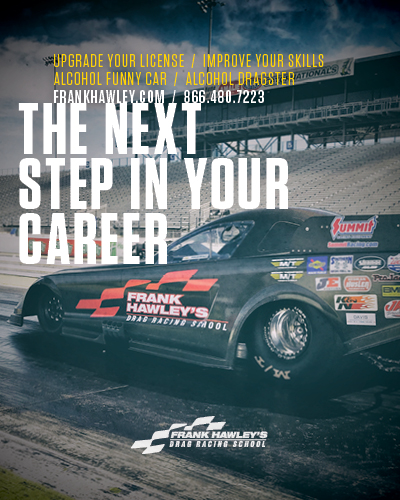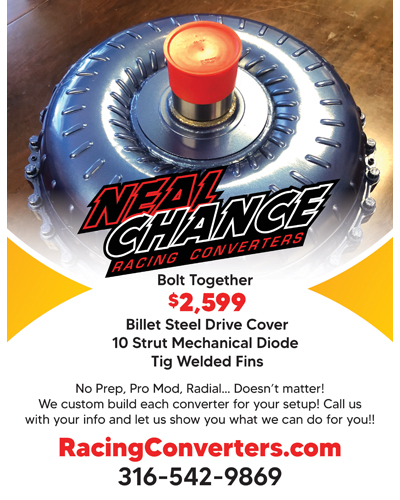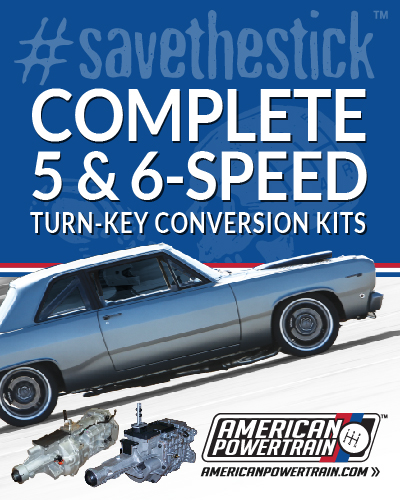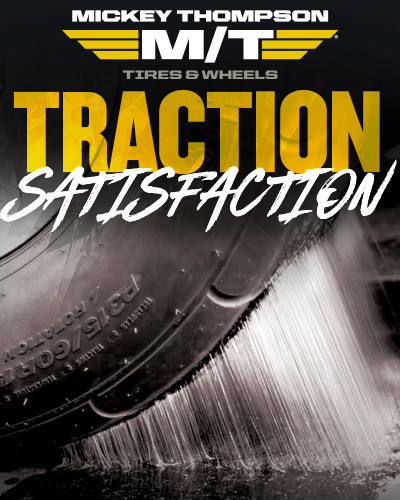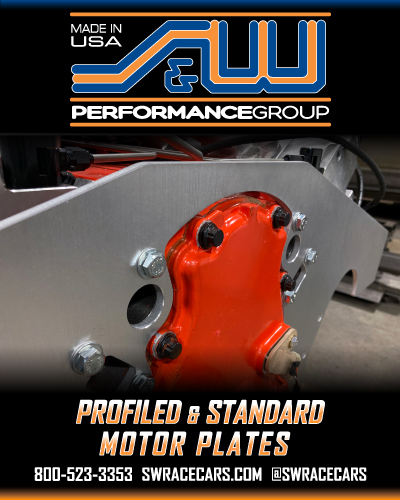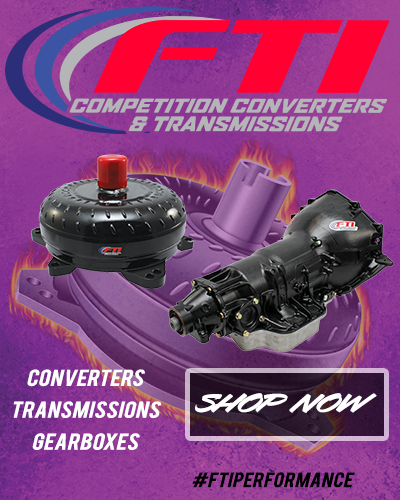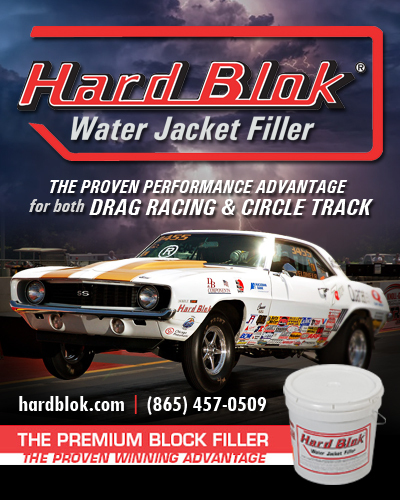ENCORE: COTTON PERRY AND THE LEGEND OF THE POCKET ROCKET
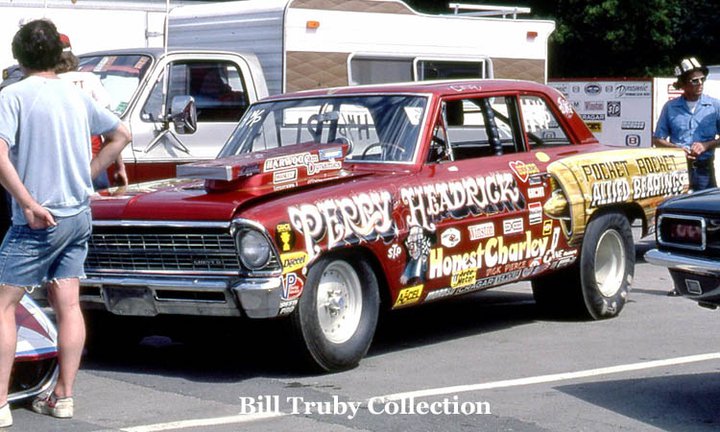
Originally published August 2011
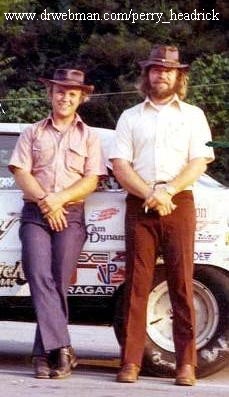 Among baby-boomer devotees of NHRA doorslammer racing, no category seduced them the way Modified Eliminator did for 14 years beginning in 1967. Although Modified ended 30 years ago, images and sounds of the vast array of vehicles easily come to mind as they scream otherworldly RPMs when leaping from the starting line and hitting every stick-shift gear change.
Among baby-boomer devotees of NHRA doorslammer racing, no category seduced them the way Modified Eliminator did for 14 years beginning in 1967. Although Modified ended 30 years ago, images and sounds of the vast array of vehicles easily come to mind as they scream otherworldly RPMs when leaping from the starting line and hitting every stick-shift gear change.
One man who excelled in Modified was Cotton Perry. Fuzzy about recalling his name? This surely helps: He drove a red 1967 Chevy II sedan H/Modified Production with “Pocket Rocket” emblazoned on the quarter panels and “Perry & Headrick” on the front fenders. He and his uncle Jim Headrick campaigned the legendary machine.
Simply stated, the 3,200-pound “Rocket” was one crazy-bad racecar for the era. With a chassis by Pat Curran of St. Louis and an oddball 301-inch Chevy inline six by Headrick, the car consistently clicked off mid and high 10s and was able to run, as Perry described it, “10 years under the index,” which actually was based on the national record according to the NHRA system back then.
Perry described the car as “violent,” appropriate because it had a 30-pound flywheel, a 3.45 low gear in the Liberty five-speed, and a 5.57 rearend gear. At the starting line that six-banger was punished, as Perry revved it between 10,800 and 11,200 RPM. Mercifully, he shifted at 7,200. Valve springs and even engines were changed regularly.
Perry and Headrick, frequently assisted by Jim Stockinger and Dewey Hedden, won six national events, earned four Division 2 titles, set numerous records, and in 1978 nearly claimed the national championship. Also, the team often dominated the intense Modified action at Brainerd Optimist Dragstrip just outside their hometown of Ringgold, Ga., and other tracks in the Southeast.
The warm weather down South provided almost year-‘round competition for Perry. “Back then we would walk, talk, creep, and crawl drag racing,” said the exuberant Perry, 64, who began racing in the early ‘60s. “Once you start drag racing, you can’t stop. It was such an adrenalin rush. We raced and worked on the car on a constant basis. We went solely to win and make the car pay for itself. We put a lot of pressure on ourselves. We were very disciplined machines.”
Such a laser focus produced rewards, since one year Perry and Headrick made between $150,000 and $300,000 with the car. Perry related that he pressured himself to drive well to complement Headrick’s dedication and ingenuity. “He was so meticulous and so far ahead of time because of his understanding of heads and camshafts,” Perry said. “He was a perfectionist and was never satisfied. Never! He was always trying something new. He was very professional and made people be their best. It was priceless the way he did it.”
One of the men’s top achievements was victory at the U.S. Nationals in 1981, the last year of Modified. Perry and Headrick joined 100 other racers in protesting the demise of Modified by driving on the return road during the first round of Top Fuel on Monday when the stands were packed. Furthermore, Perry recalled that the racers planned Saturday to object to NHRA’s decision by pulling onto the grass next to the staging lanes instead of in them when first round was called Monday. The intent was to try to commit NHRA officials to discuss the matter after the race. He and Headrick pulled onto the grass, but unfortunately no one else followed, and the racing proceeded.
NHRA stood firm in terminating Modified, and in 1982 Perry and Headrick entered Super Stock but only ran a few events, finding out that dial-under racing was not suitable. The other alternative, Competition Eliminator, was not either. With both men operating growing businesses, the “Pocket Rocket” was parked and eventually sold to Danny Davis, who painted it black and raced it as a Super Modified in Comp a while. Perry does not know what happened to the car after Davis’ ownership.
Perry and Headrick resurfaced in Comp in 1984-86 by teaming with Brian Browell and winning two national events with his dragster, which had Headrick’s engine and Perry’s driving talent. The two men were offered a well-funded Pro Stock operation in the mid-1990s but turned it down because the offer would have been too good to be true. Then tragedy struck when Headrick was killed in a traffic accident.
After that Perry dropped out of drag racing and concentrated on the racing career of his son Jamie, who runs a dirt super late-model stock car. Similar to his father, he often wins. While Perry would entertain a return to Comp racing with proper financing, he would have to overcome strong, not-so-pleasant memories.
“When I left racing, it was with a bitter taste because of how we were treated at national events,” Perry said. “We were picked on in tech by NHRA officials because we won a lot. Even though we were always gentlemen, northern guys were sarcastic toward us. It was hard to go back to Indy a few years ago when all the winners were honored because some people had put so much pressure on us. Still, I’m so grateful and humbled that I got to do this and I got to know so many great people. I miss that.”



